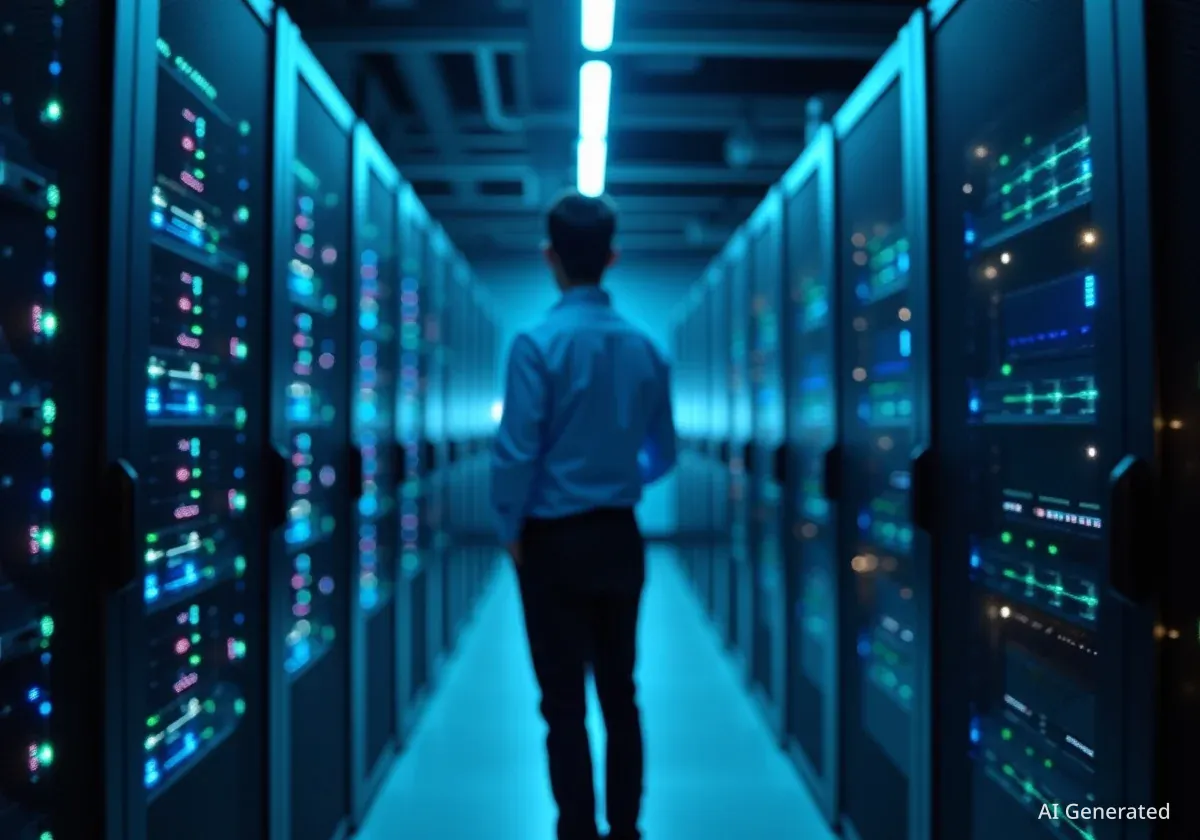The city of Denver is actively integrating artificial intelligence into its government operations to enhance efficiency and modernize services. This technological push, championed by Mayor Mike Johnston, coincides with significant budget reductions, including a proposed 6% cut to the general fund and the elimination of 170 city employee positions.
The administration's strategy was highlighted at the recent DenAI Summit, an event designed to position Denver as a national leader in governmental AI and attract technology firms. While officials promote AI as a tool for better governance, the changes are occurring alongside workforce reductions and growing concerns among city employees about job security.
Key Takeaways
- Denver is implementing AI systems across various city departments to streamline operations.
- The AI adoption is happening as the city cuts 170 jobs and proposes a 6% reduction in general fund spending.
- An AI chatbot named "Sunny" is handling public service requests and is expected to replace 10 human customer service roles.
- The police department is using an AI-powered surveillance tool, raising privacy concerns among civil liberties advocates.
- City workers have expressed skepticism and fear of being replaced by technology, especially after changes to layoff protections.
Mayor Johnston's Vision for an Efficient City
At the DenAI Summit held at the Denver Art Museum, Mayor Mike Johnston presented his vision for a more technologically advanced and efficient municipal government. The event featured panels with tech and government leaders discussing how AI can improve civic functions and build trust with the public.
Johnston's initiative aims to modernize city operations and attract technology companies to Denver. The summit, which included discussions with figures like LinkedIn founder Reid Hoffman, served as a platform to promote the city's forward-thinking approach to governance.
The mayor framed the adoption of AI as a necessary step to improve services in the face of slowing city revenues. He argued that technology could help the government do more with less, a point emphasized by his administration's concurrent budget cuts and staff reductions.
"We're trying to really move towards a culture that is far more risk tolerant," Johnston stated. "I would much rather have you try something innovative and fail at an attempt to make government run better than see something running poorly and do nothing for fear of getting into trouble about changing it."
AI Systems Deployed Across Denver
Denver has already implemented several AI-powered tools in its daily operations. These systems are designed to automate routine tasks, optimize logistics, and provide faster responses to citizen inquiries.
Public Services and Automation
One of the most visible applications is "Sunny," an AI chatbot that handles thousands of public service requests. Residents can use Sunny to report potholes, pay tickets, or get information on city permits. The city's proposed 2026 budget relies heavily on this technology to manage its 311 call center operations.
Projected Savings and Job Cuts
The city estimates that automating 311 services with the Sunny chatbot could save approximately $2.8 million in the next fiscal year. This plan includes cutting 10 human customer service positions and reducing the call center's operating hours, with it closing at 5 p.m. instead of 7 p.m.
Mayor Johnston cited the city's permit application process as another area where AI can create significant improvements. He noted that it currently takes 28 days for the city to simply acknowledge receipt of an application. With AI, he said, "that takes just one second."
Logistics and Law Enforcement
Beyond customer service, other departments are also using AI. Denver's safety inspectors now use AI software to plan the most efficient routes for their site visits. The mayor's office itself utilizes a platform called Chief AI to manage its complex scheduling needs.
The Denver Police Department employs an AI-powered surveillance system from a company named Flock. This tool tracks vehicle license plates to assist in investigations related to car thefts and homicides. However, its use has drawn criticism from civil liberties groups over data sharing practices, particularly concerns about information being accessed by federal immigration officials.
Workforce Concerns and Ethical Questions
The push for automation has been met with apprehension from some city employees. With 170 jobs already cut and hundreds of vacant positions closed, many workers fear being replaced by artificial intelligence. These anxieties have been heightened by recent changes to city layoff rules that have reduced seniority protections.
Some employees have reportedly compared the administration's efficiency drive to controversial federal initiatives. According to Denverite, multiple city workers have expressed concerns that their roles are at risk as the city increasingly turns to technological solutions.
Oversight and Governance
To manage the city's technological transition, Denver has renamed its top technology position. Suma Nallapati now serves as the "chief AI and information officer." Her role involves overseeing contracts with private AI companies and ensuring their technologies meet the city's standards for privacy, data sharing, and ethical use.
The reliance on private companies to provide these AI tools raises further questions about transparency, data privacy, and energy consumption. Critics and watchdogs are calling for clear guardrails to ensure these technologies are used responsibly and that the companies behind them are held accountable.
Balancing Innovation and Human Judgment
Despite his strong advocacy for AI, Mayor Johnston has stated there are limits to its role in government. He emphasized that crucial moral decisions must remain in human hands.
When asked if AI could one day govern or create laws, the mayor was clear that humans must make choices that cannot be reduced to purely mathematical calculations.
"I think we can have AI help us have the best input information to make that decision, but I don't think it will ever supplant our ability to decide," Johnston explained.
This sentiment was echoed by Tenzin Priyadarshi, CEO of the Dalai Lama Center for Ethics and Transformative Values at MIT, who spoke with Johnston at the summit. Priyadarshi noted, "Denver is one of the few places talking about government in AI," acknowledging the city's proactive role in navigating both the opportunities and the ethical challenges of this new technological era.





